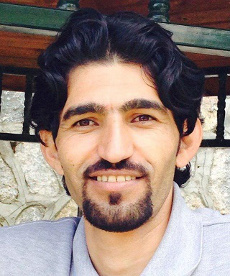 “There is no room in revolutionary courts for defense lawyers because they keep quoting laws to play for time.”
“There is no room in revolutionary courts for defense lawyers because they keep quoting laws to play for time.”
— Ayatollah Sadegh Khalkhali, the first religious judge appointed by Ayatollah Khomeini to head the Islamic Revolutionary Tribunal, May 13, 1979
“If a lawyer comes to believe that his client is guilty, he must not contribute to the prolongation of the trial; he must understand that he would be held accountable in the Hereafter . . . The Bar Association [should] identify and take action against lawyers who create mischief and divert cases from their proper course.”
— Morteza Bakhtiari, Iran’s minister of justice, Jan. 15, 2011
Two German journalists who entered Iran as tourists were arrested last October while interviewing the lawyer of Sakineh Mohammadi Ashtiani, a woman sentenced to be stoned to death for adultery. The arrest of the reporters, along with Ashtiani’s son and lawyer, was the last upheaval of a high-profile international campaign to stop the stoning. Months of effort and relentless advocacy saved Ashtiani’s life last year, but the blowback inside Iran could harm the chances of future such campaigns.
The reporters accused of spying, Marcus Alfred Rudolf Hellwig and Jens Andreas Koch, were released after four months. They are back in Germany, and the world’s attention has moved on. Yet Javid Houtan Kian, Ashtiani’s first lawyer, still languishes in a prison in Tabriz. He is silently bearing the brunt of the Iranian judiciary’s anger over its embarrassment by the campaign. Officials are using his fate as a warning to lawyers who take on “the system” to defend their clients.
The international campaign to save Ashtiani gained momentum in the summer of 2010. Civil society advocates, journalists, intellectuals, artists and foreign officials brought desperately needed attention to the case. Ashtiani’s lawyers provided documents that forced judicial authorities to admit the lack of evidence or witnesses in the case.
The campaign angered Iranian officials, who under pressure made contradictory statements and tried desperately to convince the public that Ashtiani’s death sentence had been imposed for murder. But neither the official statements nor the televised forced confessions of the prisoners could change the facts: Ashtiani was sentenced to death for adultery, not murder; the ruling was unclear regarding even the identity of her alleged partner; and the judicial process leading to the sentence failed to meet international and even Iran’s legal standards regarding evidence.
In June, Mohammad Javad Larijani, secretary of the judiciary’s Human Rights Headquarters, directly addressed the issue, saying that the West had “put the rulings of our judicial system under the microscope” and that “judges must pay even greater heed to issuing faultless rulings.” He went on: “The West believes that stoning is not a punishment but a form of torture. . . . Unfortunately, the West has succeeded in waging such a campaign on the issue of stoning that even those who have a positive view of our system have been questioning us on it. . . . [W]e have to bear in mind that the verdict of stoning, be it against Sakineh Mohammadi [Ashtiani] or any other individual, becomes a subject of political attack . . . against our system and officials. We should, therefore, act in our own wisdom in that regard.”
It has been a year since Ashtiani’s lawyer was arrested for the “crime” of talking to the German reporters. But Iranian authorities regularly harass, jail or force lawyers into exile — a second attorney of Ashtiani’s fled to Norway — for defending and publicizing sensitive cases. Authorities have been unusually severe with Kian, inflicting violence and restricting access to him.
Kian has reportedly been sentenced on charges of spreading anti-government propaganda and conspiring to disrupt Iran’s internal security. Information collected by human rights groups indicates that he has sustained injuries requiring hospitalization. Naqi Mahmudi, a lawyer who was forced to leave Iran in September after defending cultural rights activists, told me last month that, after some effort, he was allowed to see Kian for half an hour. Kian has lost significant weight and is missing several teeth, Mahmudi noted, and there are cigarette burns on his body. Kian takes painkillers and tranquilizers daily, he said, to ease his physical and mental anguish.
Iran’s arbitrary judicial process makes defendants such as Ashtiani particularly vulnerable. Without the courage of individuals such as Kian, accurate information regarding those unfairly prosecuted or convicted will be much harder to obtain. Before he succumbs to his mistreatment, judicial officials in Iran need to hear voices calling for his release. They need to know that the world will not forget about those who help save the victims of their unjust “justice.”
The writer, a former consultant with Human Rights Watch, is executive director of the Abdorrahman Boroumand Foundation, a Washington-based nonprofit that promotes human rights and democracy in Iran.
Article posted on The Washington Post on 14 October 2011
 “There is no room in revolutionary courts for defense lawyers because they keep quoting laws to play for time.”
“There is no room in revolutionary courts for defense lawyers because they keep quoting laws to play for time.”
 My Interrogator Said: You Are An Ass, And Asses Do Not Merit Human Rights
My Interrogator Said: You Are An Ass, And Asses Do Not Merit Human Rights